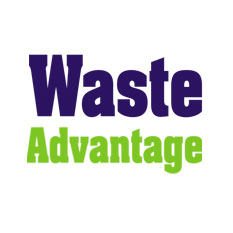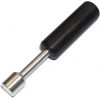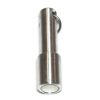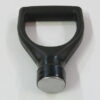Using Telematics Integrations to Eliminate Fuel Fraud in the Waste Industry
September 09, 2024 12:01:31 AM
The most optimal type of fuel card will be a Modern Fuel Risk Management Platform, which is known to eradicate fuel theft and fraud at once.

SEATTLE (Waste Advantage): Fuel fraud and theft represent a significant financial and logistical challenge for solid waste and recycling companies, where operational efficiency and cost control are critical. Because waste fleets rely heavily on fleets of vehicles that consume large amounts of fuel daily, it makes them vulnerable to various forms of fraud. Addressing these issues through advanced technologies and strategic measures is crucial for maintaining profitability.
This article explores the nature of fuel fraud and theft, the role of telematics integrations in understanding fleet performance, and the use of fuel cards as a preventative measure against fuel fraud and fuel misallocation. This is especially important for fleets with a certain portion of their fueling done offsite, as this is where fraud is most prevalent.
What Does Fuel Fraud and Theft Look Like?
Fuel fraud and theft are prevalent issues in the waste management industry, where large volumes of fuel are required for fleet and route operations. In order to identify effective preventative strategies, we need to first learn where it manifests itself:
• Direct Fuel Theft: Examples include unauthorized siphoning of fuel from vehicles or storage tanks. Fuel theft can occur during off-hours when security measures are minimal, or through bypassing inadequate locks and security systems. Thieves might use siphoning equipment or tamper with fuel tanks to extract fuel without detection.
• Falsified Fuel Records: Employees or contractors might manipulate fuel consumption records to cover up theft or misuse. This can include inflating fuel usage figures or reporting false refueling events. Falsified records are challenging to detect without accurate monitoring systems and can lead to significant financial losses.
• Unauthorized Use of Fuel: Fuel allocated for company vehicles might be diverted for personal use or for non-company vehicles. This type of fraud often involves misappropriating fuel resources, and without proper oversight, it can go unnoticed until significant losses have occurred.
• Tampered Fuel Quality: Another form of fuel fraud involves tampering with the quality of the fuel, such as diluting it with other substances. This not only leads to inefficient fuel usage, but can also damage vehicles, resulting in increased maintenance costs and operational disruptions.
The financial impact of fuel theft accounts for an average of 15 percent of expenses across the industry. By taking best practices from fleets from other industries, fleets need to implement data and technology centered solutions to automatically eliminate fuel fraud and theft.
Telematics Integrations: More Data to Understand Fleet Performance
Telematics technology provides a powerful tool for monitoring and improving fleet performance. In the context of fuel fraud prevention with fuel cards used for offsite fueling, telematics systems offer several advantages:
• Real-Time Fuel Monitoring: Telematics systems can track fuel levels in real time, providing immediate alerts if discrepancies arise between expected and actual fuel consumption. For example, if fuel levels drop unexpectedly or do not align with the vehicle’s mileage, the system can trigger an alert to investigate potential theft or leakage.
• GPS Tracking and Route Monitoring: GPS technology allows for precise tracking of vehicle locations and routes. By comparing GPS data with fuel consumption records, companies can identify unauthorized deviations from planned routes or unexplained stops that may indicate fuel misuse. This ensures that vehicles adhere to authorized routes and operational schedules.
• Driver Behavior Monitoring: Monitoring driver behavior through telematics helps identify practices that contribute to higher fuel consumption. By analyzing driving patterns such as acceleration, braking, and idling, companies can address inefficient driving habits that might lead to increased fuel use and potential fraud.
• Automated Reporting and Alerts: Telematics systems generate detailed reports and automated alerts on various performance metrics. These reports help route managers track fuel usage trends, detect anomalies, and take timely actions to address any issues. Automated alerts for unusual fuel consumption or route deviations enable quick responses to potential fraud.
Using Fuel Cards to Prevent Fuel Fraud and Theft
Fuel cards are an effective tool for controlling and preventing fuel fraud and theft. This is particularly the case when central fueling is not possible or optimal. These cards offer several benefits and features that enhance fuel management and security:
• Controlled Fuel Usage: Fuel cards enable companies to set limits on the amount of fuel that can be purchased by each cardholder. This control helps prevent excessive fuel purchases and reduces the risk of unauthorized use. Limits can be set based on individual vehicles, drivers, or locations, providing granular control over fuel expenses.
• Transaction Tracking and Monitoring: Fuel cards provide detailed transaction records, including the date, time, location, and amount of fuel purchased. These records help companies monitor fuel usage, detect discrepancies, and identify patterns that may indicate fraud. Regularly reviewing transaction records allows for early detection of potential issues.
• Fraud Detection Features: Modern fuel cards often include built-in fraud detection features, such as alerts for unusual purchase patterns or transactions outside of approved locations. For example, if a fuel card is used at an unexpected location or for an unusually high amount, the system can flag the transaction for further review.
• Integration with Telematics Systems: Fuel cards can be integrated with telematics systems to provide a comprehensive view of fuel usage. By combining fuel card data with telematics data, companies can correlate fuel purchases with vehicle performance and operational metrics. This integration enhances the ability to detect discrepancies and investigate potential fraud.
• Access Control: Fuel cards offer access control features that prevent unauthorized individuals from using company fuel resources. Cards can be issued to specific drivers or vehicles, and access can be restricted to designated fueling stations. This control reduces the risk of fuel theft and ensures that fuel is used only for its intended purpose.
• Enhanced Reporting and Analytics: Fuel cards provide detailed reporting and analytics on fuel transactions, which can be used to generate insights into fuel usage trends and identify areas for improvement. Comprehensive reports help companies analyze fuel consumption patterns and develop strategies to prevent fraud and optimize fuel management.
• Real-Time Monitoring: Many fuel card systems offer real-time monitoring capabilities, allowing companies to track fuel transactions as they occur. This real-time visibility helps detect and address potential fraud or theft promptly, reducing the impact on operational costs.
Implementing a fuel card system involves selecting a provider that offers features aligned with the company’s needs, integrating the system with existing fuel management practices, and training staff to use it effectively. By leveraging fuel cards, waste management companies can enhance their ability to prevent fuel fraud and theft while maintaining control over fuel expenses.
The most optimal type of fuel card will be a Modern Fuel Risk Management Platform, which is known to eradicate fuel theft and fraud at once. This type of solution helps waste management fleets achieve a real-time 360-view of their operations by integrating with fleet management software, accounting tools, telematics data and TMS solutions. The result is that operators are able to optimize fuel spend by creating spending profiles for each per vehicle and driver and leverage even more advanced AI-powered tools. Some examples include:
• Fuel Level Validation: Automatically track fuel tank capacity to ensure purchases do not exceed a vehicle’s fuel tank capacity, and that the fuel you purchased was received by the correct vehicle. This prevents drivers from filling portable gas containers for personal use or from fueling non-employee vehicles while stopped at a gas station.
Fuel Type Purchase Verification: Automatically flag and decline fuel purchases if the fuel type does not match the fuel type of the specific vehicle.
• Vehicle Location Validation: By integrating with telematics, you can automatically verify that the correct vehicle, driver, and fuel card are all located at the same fueling location. If they are not, then you can automatically block the transactions from happening.
• Card SMS Activation: For extra security, before you use a fuel card, you will need to activate the card by following an SMS-based card unlock process. Once you do, the cards will be available for 15 minutes, before they are automatically locked again. This prevents the cards from being used in case they are stolen.
• Retroactive Fuel Analysis: For each vehicle, modern fuel management solutions will tie back gallons consumed to the number of miles driven. This identifies any potential fuel fraud or vehicle performance issues.
Takeaways
It is particularly important for route operators to address fuel fraud and theft present in their operations, whether it is for onsite or offsite fueling activities. The first step is in understanding that the solution will require a multi-faceted approach, starting with adopting new technology solutions. Telematics integrations offer valuable insights into fleet performance, enabling companies to monitor fuel usage, detect anomalies, and improve operational efficiency. Fuel cards provide control and security, allowing companies to manage fuel resources effectively and prevent unauthorized use through powerful controls, analytics, and reporting.
By adopting these technologies and practices, solid waste and recycling companies can enhance their ability to prevent fuel fraud and theft. Additionally, as the industry continues to evolve, leveraging advanced solutions such as telematics and fuel cards will be essential for maintaining competitive advantage and achieving operational success.
Courtesy: www.wasteadvantage.com
 By
By 



